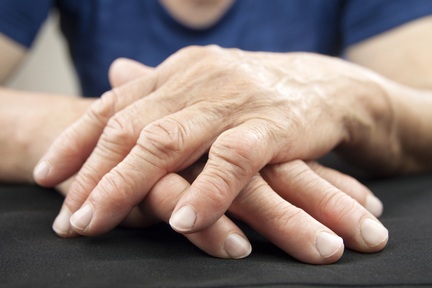Parkinson's disease could be linked to gut bacteria, say researchers
Microbes in the gut may play a critical role in the development of Parkinson's disease, according to new research published in Cell.

American researchers showed that treatment with antibiotics could reduce movement symptoms and the build-up of clumps of alpha-synuclein in mice with a gene that causes the condition.
Parkinson’s UK believe the findings could lead to new treatments that can slow, stop or even prevent the development of the condition.
Dr Arthur Roach, director of research at Parkinson's UK, said: "In recent years, evidence has been growing that Parkinson's may begin in the gut, but the chain of events involved has so far remained a mystery.
"This paper shows for the first time a way in which one of the key players in Parkinson's, the protein alpha-synuclein, may have its actions in the brain modified by gut bacteria.
"The greatest need in Parkinson's research is to develop treatments that can stop or slow down the processes that first lead to the condition, something no current treatments can do.
"This work opens an exciting new avenue of study on the gut-brain connection in Parkinson's. There are still many questions to answer but we hope this will trigger more research that will ultimately revolutionise treatment options for Parkinson's."
Researchers based at the California Institute of Technology studied mice with a small genetic change that caused them to produce too much of the protein alpha-synuclein.
As mice age, they naturally develop clumps of alpha-synuclein inside brain areas involved in controlling movement, and mobility problems similar to those experienced by people with Parkinson's.
The researchers raised the mice in either normal conditions or in a germ-free environment. They found that the mice raised in the germ-free cages had almost normal mobility and much reduced build-up of protein clumps in their brains.
Treating mice raised in normal conditions with antibiotics had a similar protective effect.
However, when mice raised in the germ-free cages were treated with chemicals released by gut microbes, or gut microbes from people with Parkinson's, their movement problems worsened.
Current antibiotics are not a viable option to treat the condition, and while the findings need to be confirmed in people, researchers hope that drugs that work in the digestive system or even probiotics may become new therapies.
Parkinson's disease is a condition in which parts of the brain become progressively damaged over many years. The three main symptoms of Parkinson's disease are involuntary shaking of particular parts of the body (tremor), slow movement and stiff and inflexible muscles.
Approximately one in 500 people are affected by Parkinson's disease, which means there are an estimated 127,000 people in the UK with the condition.
Most people with Parkinson's start to develop symptoms when they are aged over 50, although around one in 20 people with the condition first experience symptoms when they are under 40-years-old.
For more information on Parkinson’s disease visit: www.parkinsons.org.uk
Latest News Analysis
 04-Sep-19
Extra £1.5 billion announced for social care in Chancellor's Spending Review
04-Sep-19
Extra £1.5 billion announced for social care in Chancellor's Spending Review
 17-Jul-19
Flexible Working Bill for all jobs gets MPs approval - delighting parents, disabled and carers
17-Jul-19
Flexible Working Bill for all jobs gets MPs approval - delighting parents, disabled and carers
 18-Jun-19
Overnight care workers forced to sleep in offices and told 'bring your own bedding'
18-Jun-19
Overnight care workers forced to sleep in offices and told 'bring your own bedding'
 11-Jun-19
PM candidates on social care: Rory Stewart calls fixing care an 'unfinished revolution'
11-Jun-19
PM candidates on social care: Rory Stewart calls fixing care an 'unfinished revolution'
 05-Mar-19
Amber Rudd announces scrapping of controversial PIP payment review for pensioners
05-Mar-19
Amber Rudd announces scrapping of controversial PIP payment review for pensioners